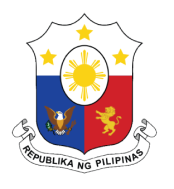April 2024
The Development Academy of the Philippines - Center for Strategic Futures (DAP-CSF) operates through three main laboratories: the Data and Artificial Intelligence Laboratory (DAIL), the Futures Thinking and Innovation Laboratory (FTIL), and the Smart and Creative Communities Laboratory (SCCL). With a steadfast focus on integrating innovation and foresight into the Academy’s programs, plans, and policies, the DAP-CSF also actively engages in collaborative initiatives with external clients and partners to help advance Philippine governments and society. In 2023, the DAP-CSF spearheaded significant collaborations aimed at promoting smart and sustainable development. Let’s look back into the highlights and milestones accomplished by the Center for Strategic Futures.
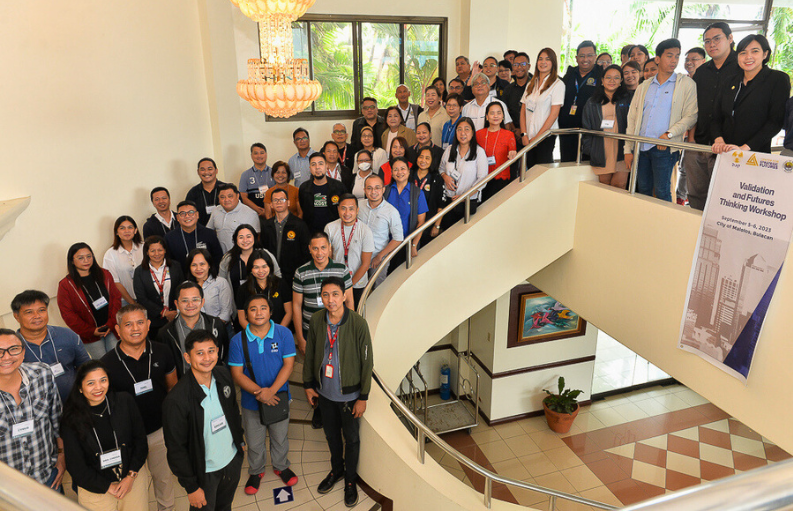
First Quarter: Start of Smart Futures
At the onset of 2023, the DAP-CSF led by the SCCL launched a groundbreaking program aimed at addressing the challenges of our rapidly changing reality. Known as LIPAD PH (Linking Innovation Partners towards Accelerated Development in the Philippines) program, this initiative is geared towards strengthening the country’s innovation ecosystem and incorporating futures thinking and foresight in developing smart, creative, and sustainable communities nationwide.
The direction towards smart city development extends beyond the DAP as the Department of Science and Technology (DOST) also governs an initiative called “Smart and Sustainable Cities and Communities Program”. Last 23 March 2023, the Development Academy of the Philippines (DAP), Department of Science and Technology (DOST), Department of Interior and Local Government (DILG), and the Department of Information and Communications Technology (DICT) signed a Memorandum of Understanding (MoU) on the development of Smart and Sustainable cities and communities. The DAP, DILG, DICT, and led by DOST, will serve as the leading proponents in the Philippines’ smart city development for years to come.
Through this MoU, this pivotal collaboration emphasized the significance of establishing smart and sustainable communities, highlighting a collective approach towards fostering innovation and sustainability in the development sector.
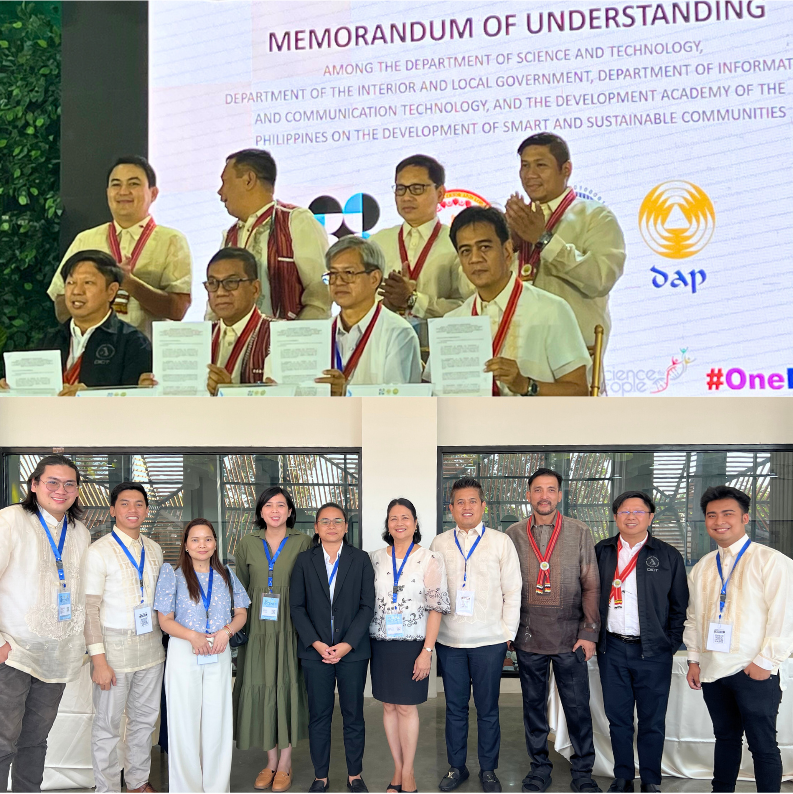
The DAIL, also early in the year 2023, engaged in pivotal activities aimed at fortifying data ecosystems within national government agencies (NGAs) and local government units (LGUs) nationwide. Among these activities were developing a data maturity model and enhancing the data maturity assessment (DMA) Portal. These initiatives were designed to comprehensively evaluate and improve data maturity across the country. Notably, the DMA Portal enhancements enabled more effective surveying of all 146 LGUs in the Philippines, marking a significant step forward in data assessment and enhancement efforts.
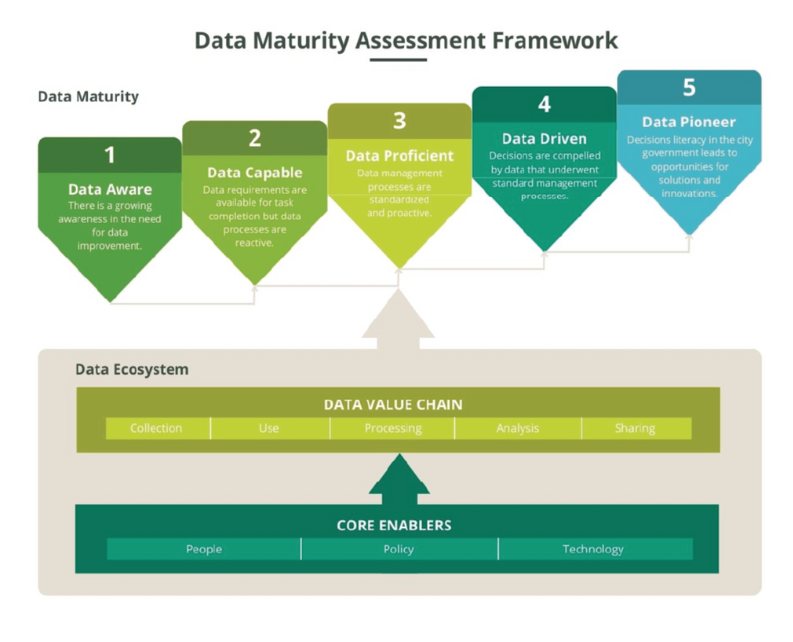
The project's implementation phase of FTIL in the first quarter saw focused efforts on enhancing the internal organizational capacity, particularly in Futures Thinking and Innovation. A Facilitator’s Training on Designing and Facilitating Futures Thinking Workshops, held in February, capacitated DAP Technical Officers to craft impactful strategic foresight training programs. Meanwhile, as part of providing technical assistance and solutions development, the CSF responded to an inter-center collaboration request by conducting a Training-Workshop on Futures Thinking and Strategic Foresight for the Mindanao State University – Tawi-Tawi College of Technology and Oceanography in March.
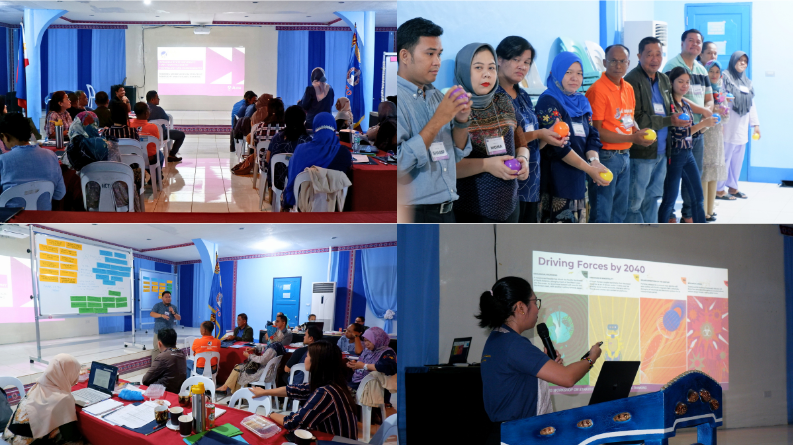
Second Quarter: Initiating Partnerships and Foresight Capabilities
The DAP-CSF launched a comprehensive LIPAD PH program in partnership with the City Government of Malolos. The program was kickstarted with a MoU ceremonial signing on June 8, 2023. Concurrently, the inauguration of the Smart and Creative Communities Network took place marking the official start of the CSF’s collaboration platform initiative. In July, a levelling-off meeting convened, gathering all city stakeholders for the inaugural step in Malolos' transformative journey toward becoming a smart city. The initial assessment then commenced using the DAP-developed Smart City Hexagon Tool to evaluate the city's "smartness" across five levels, pinpointing areas for enhancement and growth.
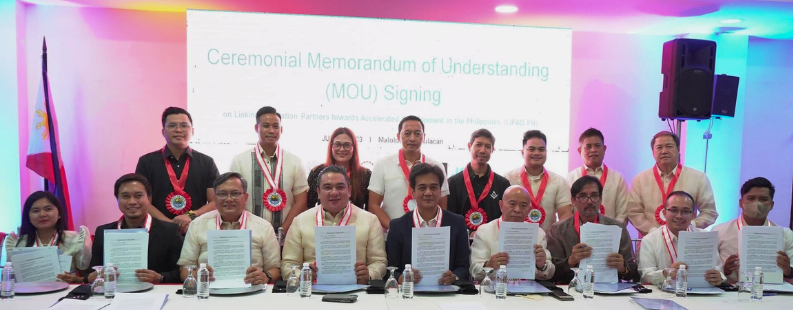
Meanwhile, the center, through the Foresight and Anticipatory Governance (FAG) program, participated in a training on Gaming Strategic Foresight, organized by the Association of Professional Futurists (APF) and the Asian Institute of Management School of Executive Education and Lifelong Learning (SEELL). The training enriched strategic planning skills through immersive experiences, equipping the program with additional innovative foresight practices. Leveraging collaborations with local and international experts, the FAG program honed its services and fostered anticipatory governance practices. Particularly, the program secured organizational membership to the APF network, enhancing access to global expertise and resources in futures thinking and foresight.
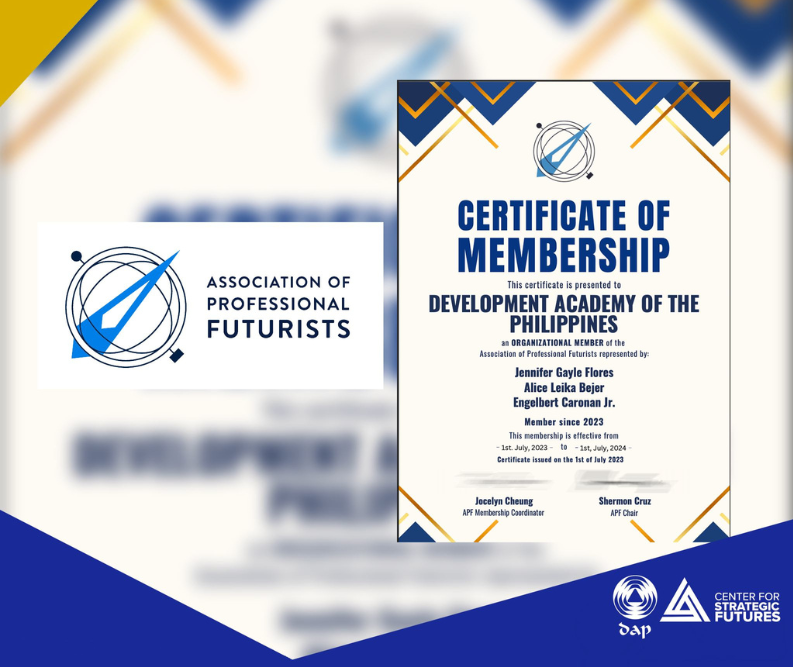

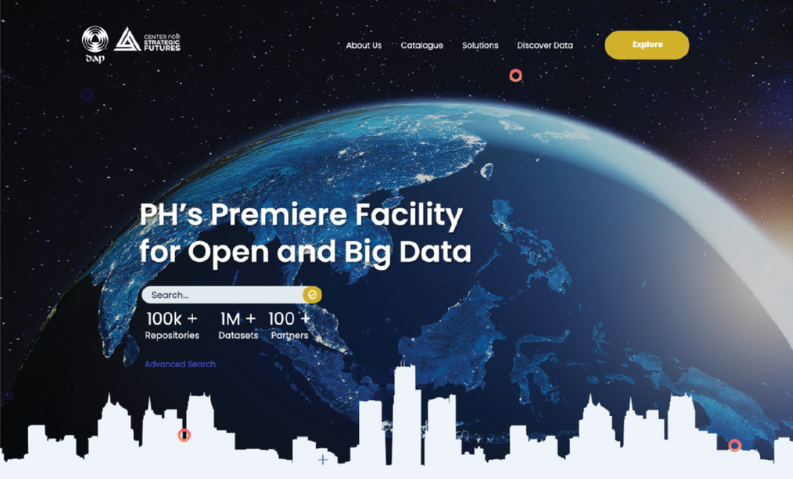
Third Quarter: Advancing Data-Driven Innovation and Futures Thinking Initiatives
In the third quarter of 2023, the DAIL achieved significant milestones in advancing data-driven initiatives for sustainable development and innovation. One notable accomplishment was the completion of the Data Observatory Philippines (DOPh) first phase, marking a pivotal step in harnessing real-time data for informed decision-making. In July, a successful demonstration of its Proof of Concept (PoC) was conducted to various stakeholders. Throughout the quarter, the CEDSA (Center of Excellence for Data Science and Analytics) Program focused on refining the Minimum Viable Product (MVP) of the DOPh, emphasizing its connectivity with primary data sources and virtualization capabilities. To facilitate this, strategic partnerships were forged with key government agencies such as the Philippine Statistics Authority (PSA) and the Department of Environment and Natural Resources - National Mapping and Resource Information Authority (DENR-NAMRIA), securing access to crucial datasets. Concurrently, ongoing efforts centered on enhancing the DMA Portal and associated research activities. Collaborating with web developers and data engineers, the CEDSA Program worked to optimize the user experience and interface of the portal, ensuring seamless access to data analytics features.
The Futures Thinking and Innovation Laboratory (FTIL) also made significant strides in fostering futures thinking practices and expanding its global network. Notably, a series of Futures Thinking workshops were conducted for the Department of Science and Technology (DOST) in three batches from August to September, enhancing capacity and promoting strategic foresight within the organization. Additionally, the project team participated in the Asia Pacific Futures Network (APFN) 9 Conference held in Kuala Lumpur, Malaysia, in September. This esteemed event, focusing on the democratization and localization of Futures Thinking and Strategic Foresight in the Asia-Pacific region, provided a valuable platform for networking and knowledge exchange. By engaging with diverse stakeholders, the project team reinforced the Development Academy of the Philippines' position as a leading futures think tank for the government, furthering its commitment to sustainable development and societal wellbeing.
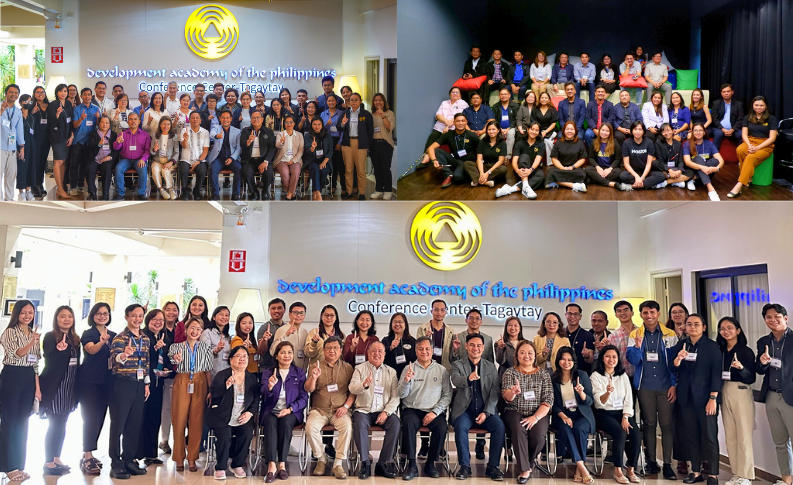
Meanwhile, the LIPAD PH program continued its momentum, transitioning to the solution ideation phase following the initial smart city assessment using the DAP Smart Hexagon Tool. A validation workshop ensured the accuracy and currency of collected data, paving the way for a foresight activity aimed at envisioning the future contextual environment of Malolos City. Held on September 6, 2023, at the BarCIE International Center in Malolos City, the workshop engaged 36 City Government representatives in scanning various drivers shaping the city's future and developing plausible future scenarios. Subsequently, a Design Sprint solution ideation activity conducted in late September resulted in the conceptualization of five tech and one non-tech solutions, propelling the city towards its smart city aspirations.
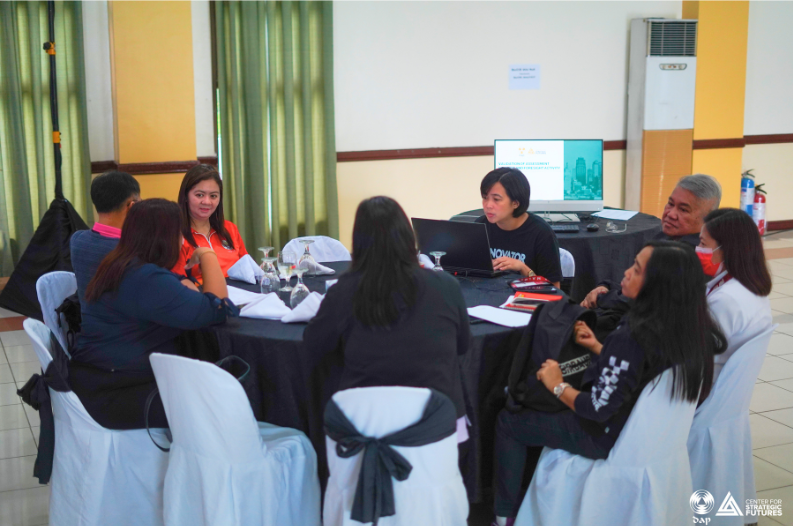
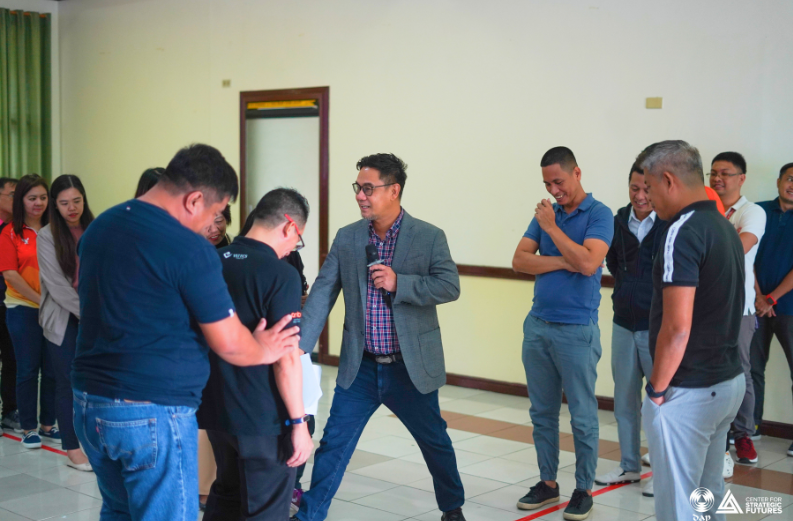
Fourth Quarter
In the fourth quarter, the SCCL continued its endeavors within the LIPAD PH Program, focusing on innovation and technology integration to propel sustainable development in Malolos City. A pivotal initiative was the Start Hackathon 2023, an innovation competition addressing priority challenges identified through the Smart City Assessment. This collaborative event facilitated the development of 10 Minimum Viable Solutions (MVS) by 10 potential startups, amplifying community engagement and fostering creative thinking.
[photo]
Additionally, the Solutions Incubation Program supported the three winning MVPs from the Start Hackathon 2023, providing mentorship, guidance, and seed funding of PHP 100,000. This quarter saw the adoption of the three winning startups and additional two finalists for incubation, forging partnerships with three prominent TBIs and formally initiating the program with the Malolos City Government, fostering a thriving ecosystem of innovation.
[photo]
Furthermore, the Technology Matching Activity sought to bridge innovation gaps by identifying and aligning relevant technologies with identified challenges. In Quarter 4, 27 technology solutions were meticulously matched with innovation challenges across smart city domains, with eight technology developers presenting to the Malolos City LGU. This initiative, in partnership with DOST-TAPI, underscores the commitment to effective technology integration for sustainable urban development.
[photo]
The SCCL also made strides in technological advancements. The Smart Connections initiative was launched, offering a platform to disseminate up-to-date insights and news in smart city development and technologies to network members. Significant progress was made on the Smart Technology Portal, an assistive and user-friendly platform for matching community challenges to existing smart city technologies, both in the market and within the Academy's repository.
[photo]
Meanwhile, DAIL made significant progress in its initiatives. First, efforts were focused on strengthening the IT infrastructure and data engineering pipeline, with the drafting of crucial strategy and acquisition plans for future implementation. Next, a notable activity was the launch of the #LIKHAMalolos initiative as part of the LIPAD PH Program, engaging citizens in solution ideation for local challenges. The program received enthusiastic participation and generated substantial support from the community. Moreover, DAIL embarked on a Technical Assistance and Capacity Development Program to promote data science and AI adoption across public sectors, aiming to enhance operational efficiency and talent development.
[photo]
Furthermore, the CEDSA Program is developing a technical assistance (TA) and capacity development (CapDev) program for NGAs to accelerate digital transformation and AI adoption in the Philippine government, aimed at achieving operational excellence and efficiency. Additionally, the program is assisting the Corporate Operations and Strategy Management (COSM) office in streamlining data processing and reporting systems, conducting thorough examinations of current processes and tools, identifying user requirements, and integrating systems with advanced analytics features for optimized workflow. Meetings with COSM and Information and Communications Technology Division (ICTD) have been conducted to determine appropriate interventions, signaling proactive steps towards enhancing operational capabilities.
[photo]
For FTIL, the project team actively engaged with potential beneficiaries of its technical assistance expertise. Exploratory meetings with the Philippine Guarantee Corporation were held last November 13, 2023. Meanwhile, the DAP sa Mindanao sought the project team’s support for planning the upcoming foresight activities with Mindanao State University – Sulu Campus and the Province of Agusan Del Sur. These organizations will be among the three remaining engagements of the project’s technical assistance component.
Last November the Program Manager of the CSF, Jennifer Gayle Flores-Ragos, attended the Dubai Future Forum, the largest gathering of world's top futurists who meet to anticipate challenges, imagine opportunities, and shape the future by challenging each other, sharing views on four themes: Empowering Generation; Regenerating Nature; Transcending Collaboration; and Transforming Humanity.
[photo]
The year 2023 marked a significant stride forward for the DAP-CSF in its mission to lead collaborations for smart and sustainable development. Throughout the year, the center, through its various laboratories, showcased a steady commitment to innovation, foresight, and technical expertise. From pioneering initiatives such as the LIPAD PH program to the meticulous development of smart city solutions and the enhancement of internal capacities, each quarter saw tangible progress and impactful contributions toward advancing the Philippines’ governance and society. As the year closed, the culmination of efforts highlighted the center’s role as a catalyst for transformative change, poised to continue shaping a brighter, smarter future for the nation.
April 2024
More than advancements in infrastructure and urban development, a nation’s real progress is measured by the quality of life of its citizens.
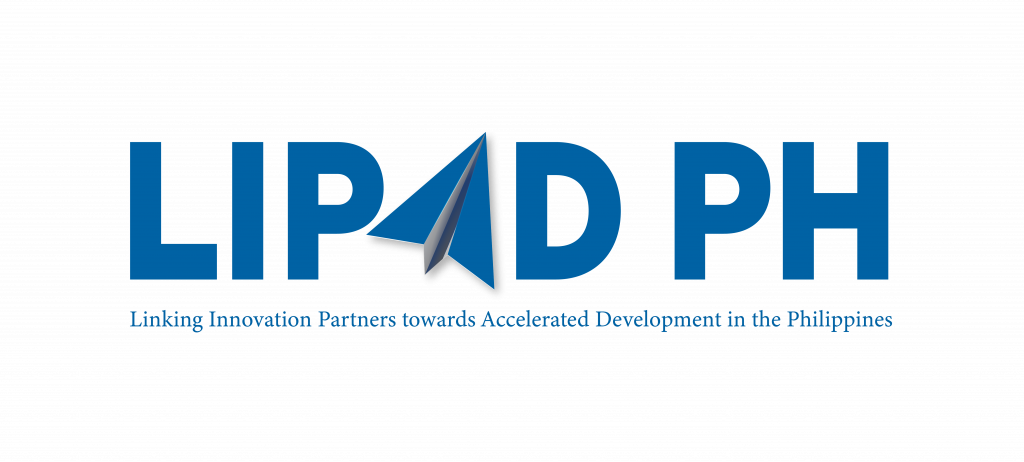
A Vision for Progress and Innovation
As we Filipinos aspire to achieve a “Matatag, Maginhawa, at Panatag na buhay” by 2040, we each have a role in the development of our communities. In this pursuit of a resilient and prosperous nation, the Development Academy of the Philippines (DAP) Center for Strategic Futures (CSF) launched the Linking Innovation Partners for Accelerated Development in the Philippines (LIPAD PH) Program. This ingenious initiative aims to unite diverse sectors in a collaborative effort to build smart and creative communities across the country.
According to ISO 37122, a city or community is smart when it increases the pace at which it provides social, economic, and environmental sustainability outcomes and responds to challenges (e.g. climate change, rapid population growth, and political and economic instability) by fundamentally improving how it engages society. It further applies collaborative leadership methods, works across disciplines and city systems, and uses data information and modern technologies to deliver better services and quality of life to those within it, without the unfair disadvantage of others or degradation of the natural environment. (International Organization for Standardization. (2019). ISO 37122:2019 Sustainable development in communities -- Indicators for Smart Cities [PDF document]. Retrieved from the Development Academy of the Philippines)
DAP-CSF’s LIPAD PH Program is strategically designed to instigate transformation at the grassroots level, leveraging the authority and influence of Local Government Units (LGUs) to catalyze positive change in society. By empowering LGUs to take the lead in driving innovation and progress within their communities, LIPAD PH aims to foster a bottom-up approach that ensures sustainable development and inclusive growth across the nation.
Unifying Roles for Diversity in Unity
The LIPAD PH Program recognizes the significant role of different sectors in driving progress.
Underscoring the interconnectedness of individual actions within a societal ecosystem, LIPAD PH Program accentuates the need for collective efforts. By working together, hurdles and gaps can be effectively addressed, propelling the nation faster towards its smart, creative, and sustainable goals.
Major Components of LIPAD PH
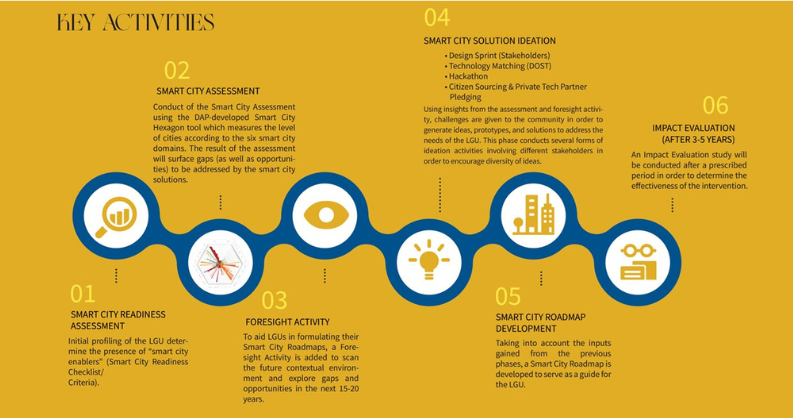
Smart City Assessment
To measure the smartness level of cities, the Development Academy of the Philippines developed the Smart City Hexagon Tool. Aligned with international standards (PNS ISO 37120 and PNS ISO 37122) and Sustainable Development Goals, this tool evaluates cities across six smart city domains (governance, economy, people, living, mobility, and environment), providing a comprehensive overview to guide strategic policy and decision-making.
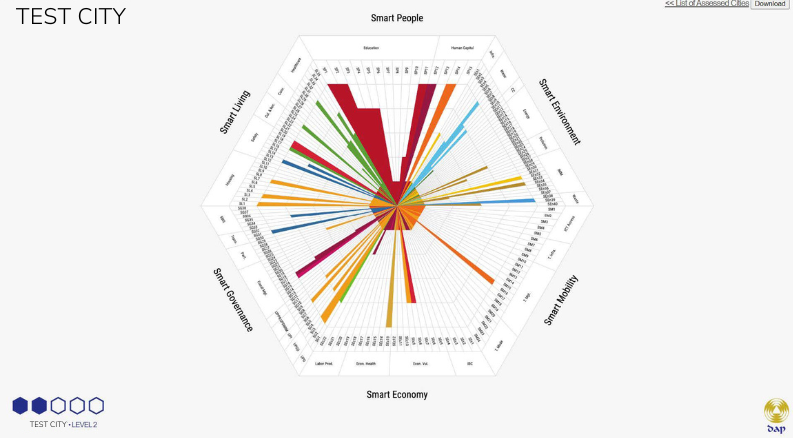
Foresight Activity
To aid LGUs in formulating their Smart City Roadmaps, a Foresight Activity is conducted to scan the future contextual environment and explore gaps and opportunities in the next 15-20 years.
Smart City Solutions Ideation
Using insights from the assessment and foresight activity, challenges are given to the community to generate ideas, prototypes, and solutions to address the needs of the LGU. This phase conducts several forms of ideation activities involving different stakeholders to encourage diversity of ideas, which includes the following:
Smart City Roadmap Development
Central to uniting innovation actors is the creation of Smart City Roadmaps. These blueprints outline milestones for Local Government Units and stakeholders over the next 10-15 years, incorporating the inputs from the foresight activities, solutions ideation activities, and data-based development processes.
Smart and Creative Communities Network
Ensuring the sustainability of smart city initiatives, the network fosters collaboration and knowledge-sharing among diverse smart city key players. This collaborative platform engages national and local governments, businesses, knowledge institutions, start-ups, and citizens in creating vibrant and sustainable communities.
Empowering Transformation
As a collaborative force, LIPAD PH envisions a future where communities become smart, sustainable, and creative. Aligned with the vision of the Development Academy of the Philippines' Center for Strategic Futures (DAP-CSF), the program aspires to establish LIPAD PH as the benchmark framework for building smart and sustainable communities. By rising above challenges and harnessing collective strengths, the program aims to empower the Filipinos to soar to new heights, creating a brighter and more prosperous future for the Philippines.
Join us on this journey of transformation, as LIPAD PH spearheads the charge towards a future marked by innovation, inclusivity, and prosperity for all.
